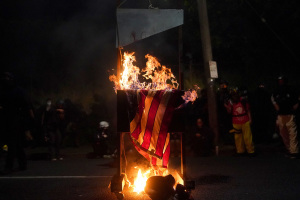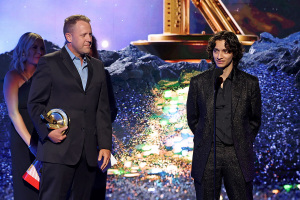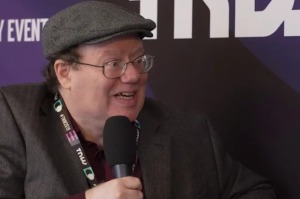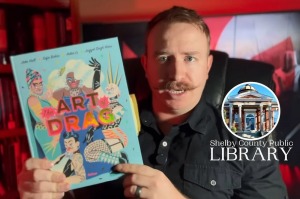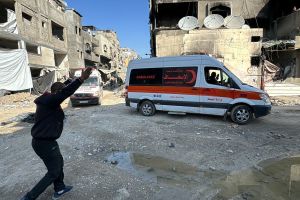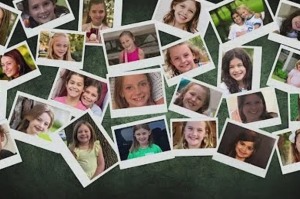Black-owned businesses near ‘George Floyd Square’ plead for help amid rising crime, police ban
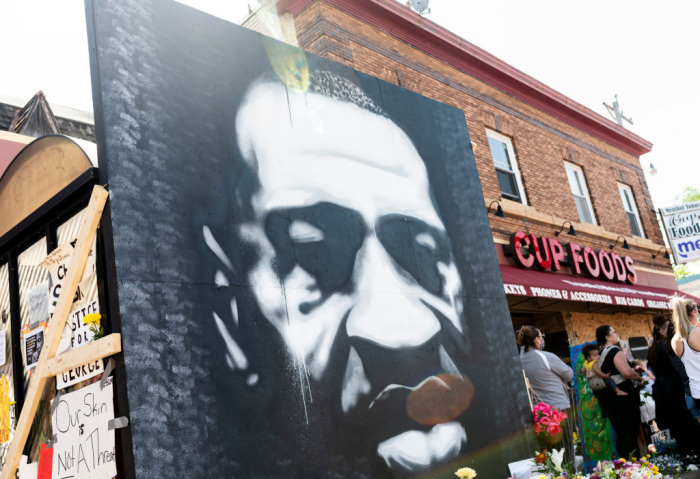
Black-owned businesses near George Floyd Square are struggling to survive amid rising crime inside the autonomous zone that has been the scene of two fatal shootings.
Violent crime has been on the rise in Minneapolis, Minnesota, since 2020. In the area surrounding the intersection of 38th Street and Chicago Avenue, near where Floyd died last May, there were 19 fatal and non-fatal shootings last year, 14 of which were from May 1–Aug. 31, 2020.
Business owners in that neighborhood, who describe themselves as the 38th Street Black Business Collective, said in a lengthy post on their GoFundMe page that they feel like a “sacrificial lamb” because their families — black families — are losing their livelihood.
While they believe in justice for Floyd, who died in police custody on May 25 last year — for which former police officer Derek Chauvin was found guilty of second-degree murder, third-degree murder and second-degree manslaughter — they are dismayed by city officials who are allowing what they described as an "occupation" and its "unintended consequences."
"Following … the reduction of the Minneapolis Police Department, there has been uncontrollable crime in this city. ... Carjackings have nearly tripled … Reports of bullets whizzing through the streets, businesses, innocent unintended residence homes, into cars and walls are plentiful. There is constant gunfire day and night, … Black businesses have suffered a similar fate having windows shot out from random gunfire, cars stolen, customers not patronizing businesses due to fear of violence in the neighborhood and throughout the city," the GoFundMe page says, in part.
These once-thriving businesses located at the intersection of 38th Street and Chicago Avenue have seen a loss in revenue of more than 75% with no reprieve in sight.
Many residents have described the police-restricted autonomous zone dedicated in Floyd’s memory as a militarized zone, much like Seattle's Capitol Hill Organized Protest occupation zone where multi people were killed and women reported being raped last summer.
In an attempt to keep their businesses going and their employees paid, the 38th Street Black Business Collective is seeking to raise $400,000. So far, they've raised nearly $12,000 toward that goal as of Saturday.
The area, according to the business group, "has always been home to some of Minnesota’s most burgeoning Black businesses. This intersection has been home to a thriving Black, community and cultural corridor. However, since May 25th, its reputation has evolved and will now forever be connected to the memory of George Perry Floyd Jr. and the subsequent destruction of our city that followed. ..."
They added, “In the fight for justice we must not forget the fight of economic justice of once thriving community. We business owners know that the fight for justice doesn't just include justice from the legal system we must also include justice for business impacted."
Andrea Jenkins, a city councilwoman who represents part of the neighborhood, said residents have complained to city council members about the frequency of hearing gunshots and the rise in crime.
“The neighbors deserve to have a level of comfort that does not include gunshots every night, and muggings and carjackings, and all the violent crimes we have been witnessing in this community,” Jenkins, told News Nation in an interview last month.
Kim Griffin, the aunt of 30-year-old Imez Wright, who was working security at the now infamous Cup Foods when he was shot dead inside George Floyd Square, told the news outlet that Minneapolis residents are afraid to enter the area.
“The situation at the memorial, from what I understand, is its kind of volatile,” Griffin said. “People that want to go and support doesn’t feel a sense of inclusion. There is more of a like militant type atmosphere over and a sense of fear.”
Speaker about the circumstances surrounding the March 6 murder of her nephew, who was a youth mentor training to be a mental health practitioner before he was killed, Griffin added: “Police were not allowed to get into that area; he was carried out outside of the zone of George Floyd Square. It was made clear law enforcement was not welcome to penetrate that zone, which is an atrocity because his life was taken, and I mean who knows whether or not he would have survived had things been different."
Before the fatal shooting of Wright, a man named Dameon Chambers was shot and killed at the square during a Juneteenth celebration. Emergency services arrived at the scene but were blocked from the area. A city document said that “ultimately [police] had to pull Mr. Chambers to an area where the ambulance could access the area.” He later died from his injuries, KIMT News reports.
Recently, activists calling themselves the Twin Cities Encampment Responders have encamped in the square, which is cordoned off by cement barricades, warning that they will stay there through August or until the end of the trial for the three other Minneapolis police officers who were at the scene when Floyd died, Fox News reported.
On Wednesday, the Twin Cities Encampment Responders tweeted, “We don’t need the mayor’s permission to make decisions about our city. 38th & Chicago will be held until our demands are met.”
The Twitter thread referred to the two dozen demands of Justice Resolution 001, which includes continuing the closure of the square until after the trial.
The resolution said that the barricades can be negotiated for removal if the city meets their “demands for justice.”
The autonomous zone also has special instructions for white visitors posted on a sign near the entrance, which was tweeted out by Fox News correspondent Matt Finn.
“Decenter yourself and come to listen, learn, mourn, and witness,” the sign said in reference to white people. “Remember you are here to support, not to be supported.”
“Seek to contribute to the energy of the space, rather than to drain it,” the statement continued. “Bring your own processing to other white folks so that you will not harm BIPOC.”
BIPOC is an acronym for black and indigenous people of color.















